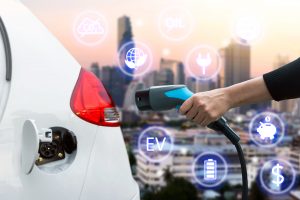 In 1888, German inventor Andreas Flocken created what is widely considered the world’s first electric car. According to The Battery Issue, recently published by The Verge, the 900-pound vehicle drove at the top speed of nine miles per hour, coming to a halt after a two and a half hour test ride. Although it was considered a success, it wasn’t entirely. The car’s battery, sustainably charged with water power, had died.
In 1888, German inventor Andreas Flocken created what is widely considered the world’s first electric car. According to The Battery Issue, recently published by The Verge, the 900-pound vehicle drove at the top speed of nine miles per hour, coming to a halt after a two and a half hour test ride. Although it was considered a success, it wasn’t entirely. The car’s battery, sustainably charged with water power, had died.
Today, nearly 130 years, German carmakers are still having trouble with their batteries – specifically with battery cells. As a result, car companies are relying on suppliers from China, Korea, and Japan for the highly needed component.
“Cells can be a major technology differentiator and cells are the by far most costly part of the battery pack,” says Martin Winter, a professor of materials science, energy, and electrochemistry at the University of Münster and ECS Battery Division and Europe Section member. Winter says a large scale production of battery cells by European or German companies will be crucial in order to take part in the “enormous and rapidly growing market.”

